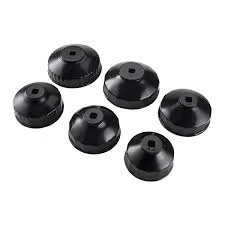Mobile:+86-311-808-126-83
Email:info@ydcastings.com
ss investment casting
Exploring SS Investment Casting A Versatile Manufacturing Technique
Investment casting, also known as precision casting or lost-wax casting, is a well-established manufacturing process that is especially valued in industries that require high precision and complex shapes. The term SS investment casting can be interpreted as a specific focus on stainless steel (SS) used in investment casting processes. This article delves into the various aspects of investment casting with a particular emphasis on stainless steel, its benefits, applications, and the future of this remarkable technique.
The Basics of Investment Casting
Investment casting involves creating detailed metal parts by pouring molten metal into a mold made from a wax pattern. The process begins with the creation of a wax pattern that is coated in a ceramic shell. Once the shell hardens, the wax is melted away, leaving a cavity in the shape of the desired component. Finally, molten metal is poured into this cavity to create the final part. This method is favored for its ability to produce intricate designs and achieve a high level of dimensional accuracy.
Advantages of Using Stainless Steel in Investment Casting
Stainless steel is an alloy known for its corrosion resistance, strength, and durability. These properties make it an ideal candidate for investment casting in a variety of applications. Here are some advantages of using stainless steel in the investment casting process
1. Corrosion Resistance Stainless steel is highly resistant to rust and corrosion, making it suitable for components that will be exposed to harsh conditions, such as marine environments or chemical processing industries.
2. Strength and Durability Components made from stainless steel can withstand significant stresses and strains without deforming or breaking, which is essential in applications where reliability is critical.
4. Versatility Stainless steel can be alloyed to achieve specific properties or characteristics, including enhanced hardness or improved machinability, allowing manufacturers to tailor components to their particular needs.
Applications of Stainless Steel Investment Casting
ss investment casting

SS investment casting has a wide range of applications across various industries. Some notable examples include
1. Aerospace In the aerospace sector, components often require high precision and must withstand extreme conditions. Investment casting allows manufacturers to create parts like turbine blades, brackets, and structural components from stainless steel that meet stringent safety and performance standards.
2. Medical Devices The medical field often requires components that are not only durable but also biocompatible. Stainless steel investment casting is used to produce surgical instruments, implants, and other medical devices essential for patient care.
3. Automotive Stainless steel components in automobiles must withstand wear and tear while also providing aesthetic appeal. Investment casting enables the production of complex parts such as exhaust manifolds and fuel injectors that enhance both performance and design.
4. Oil and Gas The oil and gas industry requires components that can withstand harsh environmental conditions and pressure. Investment casting provides reliable parts such as valve bodies and pump casings made from high-strength stainless steel.
Future Trends in Investment Casting
With advancements in technology, the investment casting industry continues to evolve. Innovations such as 3D printing are being explored to create more intricate wax patterns, streamlining the mold-making process, and reducing production times. Additionally, the development of new stainless steel alloys and enhanced casting techniques could lead to even more efficient and effective manufacturing processes.
Sustainability is another trend impacting the investment casting industry. Manufacturers are increasingly focusing on reducing waste and energy consumption throughout the casting process. By recycling materials and employing cleaner technologies, the investment casting sector can align better with global sustainability goals.
Conclusion
SS investment casting represents a vital aspect of modern manufacturing, especially in niches where precision and material properties are paramount. The advantages of stainless steel in investment casting, combined with its wide range of applications, make it a preferred choice for manufacturers facing complex challenges. As technology and processes continue to improve, the future of investment casting looks promising, poised to meet the evolving demands of diverse industries while prioritizing sustainability and efficiency.
-
Why Should You Invest in Superior Pump Castings for Your Equipment?NewsJun.09,2025
-
Unlock Performance Potential with Stainless Impellers and Aluminum End CapsNewsJun.09,2025
-
Revolutionize Your Machinery with Superior Cast Iron and Aluminum ComponentsNewsJun.09,2025
-
Revolutionize Fluid Dynamics with Premium Pump ComponentsNewsJun.09,2025
-
Optimizing Industrial Systems with Essential Valve ComponentsNewsJun.09,2025
-
Elevate Grid Efficiency with High-Precision Power CastingsNewsJun.09,2025











